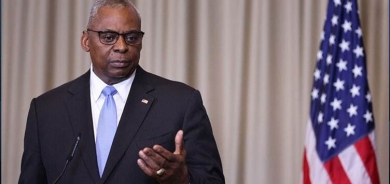Cold weather kills nine Kurdish PKK rebels in Turkey

HPG (People’s Defense Forces) Main Headquarters has reported that nine guerrillas have recently lost their life because of severe weather conditions in the guerrilla controlled Qandil border area between Turkey and Iraqi Kurdistan region.
The statement by HPG said that; “Eight comrades have died martyr on duty on 4 March as a result of an avalanche falling in Dola Koke area of Qandil region in Media Defense Areas. Despite all efforts given by our units, our comrades couldn’t be saved.
On the other hand, one other comrade who fell sick on 5 March because of severe weather conditions couldn’t be saved despite all medical attention."
The names of PKK guerrillas are listed below:
• 1989 Diyarbakır born, Amed Serdoz code named Zeynep Ulaş
• Hakkari born, Beritan Şafak code named Hülya Gök
• 1991 Van born, Doza Welat code named Rozerin Bilici
• 1988 East Kürdistan Sine born, Meysa Sipidar code named Someyi Sofizade
• Van born, Nuda Dilara code named Sümeye Polat
• 1989 Batman born, Rengin Şinda code named Şehdiya Zeyrik
• 1991 Hakkari born, Ruken Çayan code named Nuran Bellier
• 1992 Doğubayazıt born, Zemyan Gilidağ code named Fatma Çete
• 1974 Şirvan/Siirt born, Ferhat Koçer code named Sabri Açıkça
Since it was established in 1984, the PKK has been fighting the Turkish state, which still denies the constitutional existence of Kurds, to establish a Kurdish state in the south east of the country, sparking a conflict that has claimed some 45,000 lives.
But now its aim is the creation an autonomous Kurdish region and more cultural rights for ethnic Kurds who constitute the greatest minority in Turkey, numbering more than 20 million. A large Turkey's Kurdish community openly sympathise with the Kurdish PKK rebels.
PKK's demands included releasing PKK detainees, lifting the ban on education in Kurdish, paving the way for an autonomous democrat Kurdish system within Turkey, reducing pressure on the detained PKK leader Abdullah Öcalan, stopping military action against the Kurdish party and recomposing the Turkish constitution.
Turkey refuses to recognize its Kurdish population as a distinct minority. It has allowed some cultural rights such as limited broadcasts in the Kurdish language and private Kurdish language courses with the prodding of the European Union, but Kurdish politicians say the measures fall short of their expectations.
The PKK is considered as 'terrorist' organization by Ankara, U.S., the PKK continues to be on the blacklist list in EU despite court ruling which overturned a decision to place the Kurdish rebel group PKK and its political wing on the European Union's terror list.














